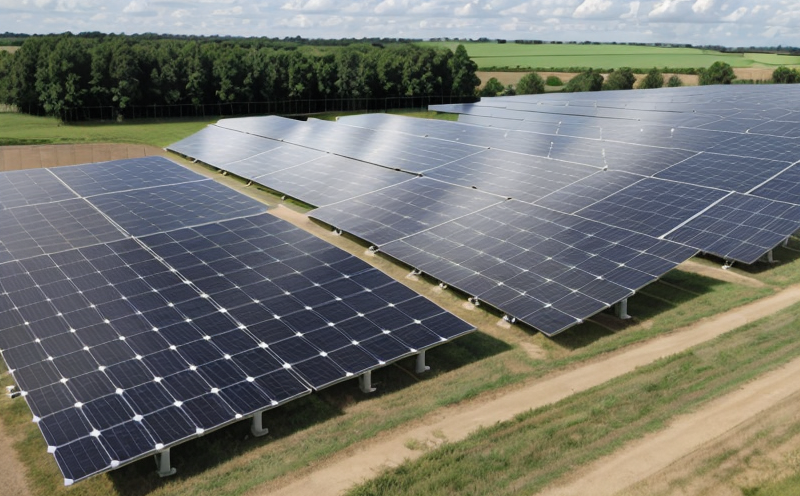IEEE C37 Relay Protection Testing in Renewable Energy Systems
The IEEE C37 series of standards provides guidelines and specifications for relays used within power systems. Among these are relay protection devices that ensure the safe, reliable operation of renewable energy (RE) systems. These devices monitor system conditions to detect faults and initiate protective actions such as tripping circuit breakers or disconnecting faulty components.
Renewable energy sources like solar PV arrays, wind turbines, and storage batteries require robust relay protection testing to ensure they function correctly under various operational scenarios. The IEEE C37 standards are crucial in this context because they provide a consistent framework for evaluating relay performance in complex power systems that include renewables.
The testing process involves several steps, each critical to ensuring the reliability of the system. First is pre-commissioning tests which check the initial state and accuracy settings of the relays. Next comes load flow simulations to understand how the relay will perform under expected operational conditions. Surge and transient voltage tests assess the relay's ability to withstand high-voltage spikes. Another key test is short-circuit current simulation, ensuring that the relay can accurately trip during a fault.
For solar PV systems, testing focuses on verifying the correct operation of relays in scenarios such as islanding conditions where the system disconnects from the grid to prevent back-feeding. Wind turbines require tests for their unique operational characteristics, including variable speed and pitch control mechanisms that can affect relay performance.
The acceptance criteria for IEEE C37 relay protection testing are stringent and vary depending on the specific application and environment. Compliance with these standards ensures that relays function correctly under a wide range of conditions, thereby enhancing system safety and reliability.
Industry Applications
- Solar Photovoltaic (PV) Systems: Ensuring safe disconnection during faults to prevent back-feeding into the grid.
- Wind Turbine Generators: Evaluating relay performance in variable speed and pitch control conditions.
- Battery Storage Systems: Testing for accurate fault detection and rapid response times.
- Hybrid Renewable Energy Systems: Comprehensive testing to integrate multiple renewable sources effectively.
- Distributed Generation Networks: Ensuring relays can manage increased complexity in distribution networks.
In each of these applications, the IEEE C37 standards provide a robust framework for evaluating relay protection devices. This ensures that they operate reliably under various conditions, contributing to overall system stability and safety.
Eurolab Advantages
Our laboratory offers comprehensive testing services tailored specifically for IEEE C37 relay protection in renewable energy systems. With years of experience and state-of-the-art facilities, we provide high-precision tests that ensure compliance with international standards.
We have a team of expert engineers who understand the nuances of renewable energy systems and can offer detailed insights into our testing processes. Our advanced equipment allows us to simulate real-world conditions accurately, ensuring that your relays perform as expected under all circumstances.
Our commitment to quality is reflected in our meticulous attention to detail during each test. From initial setup to final analysis, we ensure every step adheres strictly to IEEE C37 specifications. This guarantees reliable results and peace of mind for our clients.
Why Choose This Test
- Ensures compliance with international standards such as IEEE C37.
- Provides detailed insights into the performance capabilities of your relays under various conditions.
- Reduces the risk of system failures and enhances overall safety.
- Precise simulation of real-world operational scenarios ensures accurate testing results.
- Expertly trained engineers provide comprehensive reports with actionable recommendations.
- State-of-the-art facilities offer unparalleled accuracy in our tests.
By choosing IEEE C37 relay protection testing, you are investing in the long-term reliability and safety of your renewable energy systems. This not only meets regulatory requirements but also supports sustainable development goals by ensuring efficient and safe operation.





